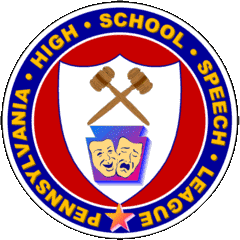In English class a few weeks ago, we were talking about immigration and different cultures in regard to Americanah, and it made me think about my own roots. Coming to Penn State has made me think about my background more than ever, and, if I’m being honest, it’s possible that I’m having a bit of a cultural identity crisis at the moment.
I explained a good deal of my basic background in my first passion blog post. I was born in Hiroshima, Japan as a dual citizen of both countries. I moved to America around the age of 7, but I went back and forth between the two countries for the majority of my childhood. Japanese is my first language, and English is my second. I attended elementary schools in both Japan and America (one school in California, and two in Pennsylvania). Growing up, I had both cultures in my house, and I was switching back and forth between the two countries. I’d say I spent about 40% of my childhood in Japan and 60% in America (and even in America, I was moving around from state to state). It was odd, and now I’m confused. It seems like I have multiple cultures within me, and yet I can’t say that I feel particularly connected to one over the other. In fact, I don’t feel connected to any. Instead, I associate with this mixed culture that is a product of the travel-filled childhood that I had. I don’t think I’m American enough when I live here, and I’m too American when I live in Japan. But don’t get me wrong, I’m proud to be American just as much as I am proud to be Japanese, and this is by no means a complaint. I just think for the most part, I was expecting Penn State to give me a place where I fit in culturally, but I’ve since realized that that’s not really going to happen. Instead, I have to embrace the undefined nature of my mixed culture instead of both halves separately.
Enough people have experienced this to create a term for it. I’m considered a “third culture kid” (TCK). According to TCKid.com, “TCKs integrate aspects of their birth culture (the first culture) and the new culture (the second culture), creating a unique ‘third culture’.”After looking into this term more, I stumbled upon an Asian-American issues blog that addressed the idea of the “third culture kid” as such:
It’s an experience that comes in many different variations. Say you live in Lisbon, then move to Paris, and constantly move between the two cities. What point does the Portuguese end and the French begin in your culture? This is where the Third Culture begins: when you feel loyalty to neither city, but with the people in the interim: those in the airports, those on the road, and those in transition. It’s the people who can be coming from Marrakech, Toronto, Rio, or Los Angeles, whom you all meet while living elsewhere that you relate to more. Their nationalities and ethnicities are arbitrary–it’s the experience of moving between cultures and being tied to none.
Another page I found on TCKid.com was “You Know You’re a TCK When…” Here are some of my favorites that are relevant in my life:
- “Where are you from?” has more than one reasonable answer
- You have multiple passports
- Your minor is a foreign language you already speak
- Your life story uses the phrase, “Then we moved to…” three (or four or five…) times
Overall, I’m happy that I had this little epiphany. My unique cultural identity hasn’t changed, but it’s nice that I finally found a title for it.



